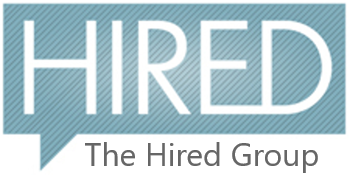
You’ve done a terrific job of wooing the recruiters at your first interview. Great! What’s next? For some lucky few, it might mean immediate employment. For others, it could mean another round of nerve-racking questions and even more competition.
The second job interview, also known as the follow-up interview, doesn’t have to be nerve-racking at all if you prepare just right. However, this time you have to be even more careful than the first interview, because in the follow-up session the recruiter wants to make sure (one last time) if you are just the perfect fit.
Here are some ways you can assure yourself that you are geared up with just the right attitude that will allow you to answer their questions with confidence.
1) Use Your Previous Answers As A Guide: Stick to what you said during your first interview and make sure you have those “claims” in mind. Chances are that you must have said something that really impressed them and got them thinking about you as a worthy candidate. Use your statements in the first interview as a guide, and if it is needed, then elaborate more on what you said earlier.
For occasions where the interviewers are completely different the second time, you should be prepared to answer the same questions as you did in the first interview. Even in this scenario, you’d want to stick to the same answers (incase the first interviewer communicated the information to his colleague). Don’t change your statements. You don’t want them to think you’re a phony.
2) Always Back-Up Your Claims With Examples: In the first interview, you may have gotten by with answers that were somewhat impressive, but still a bit vague. You may have had the employer thinking he “might” want to hire you, but he’s not so sure. In the second interview, however, he wants to be 100% sure he wants to hire you. This time, ensure that you back-up your claims with clear and concise examples. “I was able to turn-around my team’s performance by using X clever method.That earned me The Employee of the Year Award.”
3) Be Ready To Share Examples Outside Of Professional Life: Follow-up interviews are usually more intensive and the interviewers have more time to be informal. A recruiter might want to get to know you on a personal level this time. Have personal experiences, hobbies, and other stories ready which highlight why you would make a great team member. For instance, how one time you offered a friend dissertation assistance which was related to your field and how it was a great hit.
4) Attend to Every Panel Member: Second interviews may be conducted by a panel or a group. Each panel member will have a say in whether or not you get hired, and their evaluations may differ from the interviewer sitting next to them. With that in mind, it is essential to make sure that you develop an understanding with each of them by making eye contact, answering their questions appropriately, andgiving each member individual attention when necessary.
5) Come Prepared With More Skill-Focused Answers: Second interviews usually involve in-depth analyses of your skills or personality traits relevant to the position. While the first interview might be held only to fish through the basics, the second interview will require you to be more skillsfocused. If you possess a set of technical skills, this is the time for you to show them off. This time you’ll probably meet an expert who might not even be trained at interview-taking, but is an adroit of the skills required for the job. Come prepared with a handful of stories and examples that are relevant to the specific skills you have.
6) Delve more into the Company’s Bio: Before the first interview, you must have looked through the company’s website especially the “History” and “About the company” sections. That was probably good enough for the first time. This time, however, the research needs to be even more in-depth. Think “industry” this time.
For a publicly heldcorporation you might want to look into the SEC (Security Exchange Commission) documents where all issues are publicly disclosed. Other articles that can be found online or in business publications, trade publications, or local newspapers are also worth looking into. Don’t be afraid to ask questions related to the information you sought out. Being subtle or restrained is a red flag for employers.
A career guide by profession, Rochelle Ceira takes great pleasure in helping people with finding their passion that ultimately leads them to the right career path.

Recent Comments